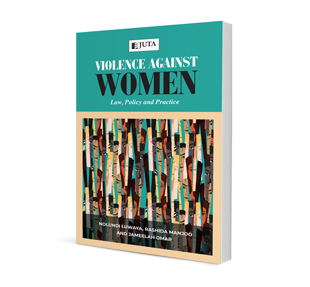
Evolution of provisions relating to violence against women in South Africa’s Traditional Courts Bill
Author Monica de Souza Louw
ISSN: 1996-2088
Affiliations: LLB LLM (University of Cape Town); Deputy Director, Land and Accountability Research Centre, Faculty of Law, University of Cape Town.
Source: Acta Juridica, 2020, p. 87 – 134
Abstract
Three versions of the Traditional Courts Bill (TCB) have been tabled before Parliament in the last two decades. Each version has raised questions about its impact on women’s experiences in customary law dispute resolution forums and whether sufficient protection is being provided for women’s rights. Concerns relate to the subject matter dealt with in traditional courts, the extent to which women’s voices are heard and taken seriously, and the impact on women of processes used to resolve disputes, including whether there are avenues for accountability. This article describes the evolution of the TCB’s approach to these matters with particular reference to women who have experienced violence or threats of violence and are involved in traditional court processes. The drafting process that occurred after the lapsing of the 2012 TCB version, and which gave rise to the 2017 TCB version, is highlighted. The analysis suggests a correlation between the prevailing gender dynamics within a particular drafting forum and the treatment of women’s concerns in the TCB’s provisions. Yet the TCB, and customary law more generally, could play an important role in protecting women from violence and providing appropriate recourse. It is therefore argued that the TCB law-making process must take public participation seriously and incorporate sincere efforts to build on women’s experiences of traditional courts and violence.